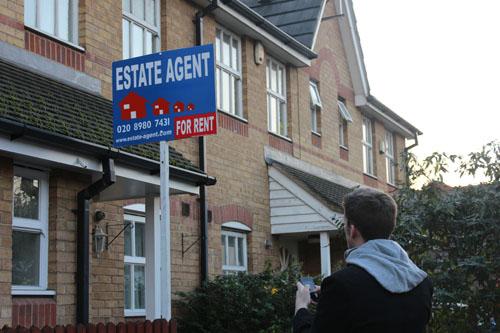The extent of Britain’s housing crisis has been laid bare by a new report from the real estate consultancy Knight Frank.
Rising property prices and stagnant wages leave increasing numbers of people with little alternative to renting. Over the next five years the number of renting households is forecast to increase to around 5.79 million, or 24 per cent of the total, up from about 21 per cent today. More alarmingly, renters across the UK spend an average of 62 per cent of their income on rent.
A YouGov survey of more than 10,000 tenants and 26 major investors also found that while at least three-quarters of UK renters are living in homes owned by private landlords, they will increasingly rent from large-scale institutional landlords such as city firms and property companies investing in the growing Build-to-Rent or multi-housing sectors.
James Mannix, head of residential capital markets at Knight Frank, said of the report: “The strength of the UK private rented sector (PRS) has grown demonstrably in recent years. As consumer demand for affordable, flexible accommodation continues to rise, PRS is firmly establishing itself as a key opportunity for institutional grade investment, due to its long-term potential.
Informed by the survey of the key investors and operators in the market, Knight Frank estimates that by 2022, the private rented market will be worth in the region of £70bn.
Young professionals aged between 25 and 34 make up the largest proportion of households living in the PRS. However, there are also significant numbers of renting families along with 50- to 64-year-old sole-occupiers and couples in addition to retirees many of whom spend over half their incomes on rent. Overall, 40 per cent of renters pay more than 50 per cent of their incomes on rent, the report found.
Unsurprisingly, 68 per cent of renters still expect to be living in rented accommodation in three years’ time, with 30 per cent of respondents saying that the most common reason for renting was to saving for a deposit to buy a property, 21 per cent said renting allowed them to live in an area where they could not afford to buy, while 18 per cent calculated that renting was more affordable than paying a mortgage.
The Renters Alliance helps renters with bad landlords and letting agents. If you have a story you would like to share, please contact the National Renters Alliance through our website or email us at contact@nralliance.co.uk

Please share the study where you got these numbers. I suspect there is a problem with your calculations.
https://www.reddit.com/r/unitedkingdom/comments/6x5gc1/renters_in_the_uk_spend_average_of_62_per_cent_of/
Sounds highly dubious, either errors or you have manipulated the results to suit the political agenda you are trying to push
The generally accepted industry standard is a minimum income of 2.5 times the rent.
Highly dubious indeed.
Lots of sites have posted about this Knight Frank report but nowhere else seems to have made this claim about renters spending on average 62% of income on rent, the figure also doesn’t seem to appear in the original report by KF. Without any link to the original source here I’m highly dubious that this is being spun for political purposes.
Bad article. Doesn’t make clear whether or not 62% is of gross income, income less taxes or incomes with taxes and benefits netted off.
Point is however that on average we pay over 60% of our incomes on taxes. Therefore for renters its not rents at 62% that makes housing unaffordable, but our choice of what we do and do not tax.
To be clear, a shift away from taxing income, capital and transactions and onto location rents would result in housing becoming >3.5 times more affordable, as a ratio of discretionary incomes to rent, for a typical working UK household.
Does the National Renters Alliance understand this?